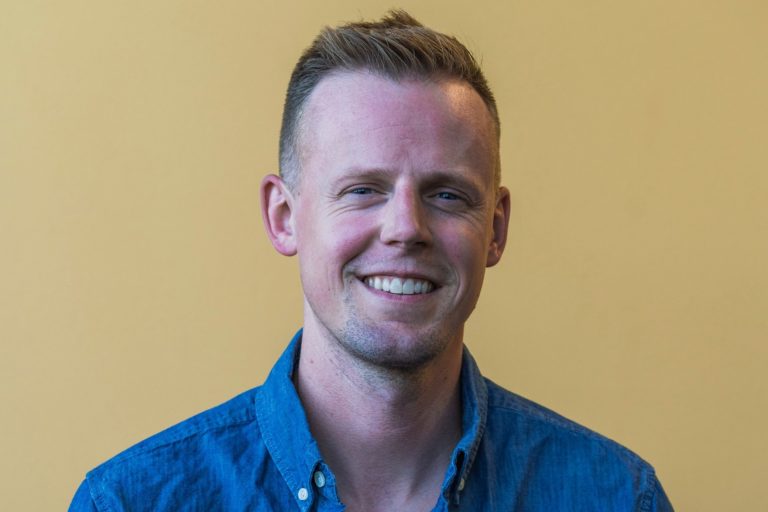by Mike Jenkins | September 2014
Stop by the EEG Lab in B418 Wells Hall on the MSU campus, most any day, and you’re likely to find Professor Alan Beretta, a grad student or two, perhaps a visiting professor, and a volunteer subject in a bright blue electroencephalogram (or EEG) cap that is designed to show when things are happening in the brain.
“In my time at MSU,” says Beretta, Professor of Linguistics, and Director, EEG Lab in the Department of Linguistics and Germanic, Slavic, Asian and African Languages, “my research has involved looking at various aspects of neurolinguistics, a very general term that encompasses any effort that seeks to determine the relation between language and brain.
For instance, that could be brain damage leading to language deficits; a number of colleagues and I have looked at that in various languages.” Beretta says that it was surprising for him to find out that if you suffer a stroke that affects your language, that it could result in selective differences.
“There will be certain sentences you’ll understand well, and others that you will not understand well,” he says. “And you can make certain predictions: if you’re bad at understanding a sentence with a certain structure, then you should also be bad at understanding a sentence with a related structure.
“Conversely, if you’re good at understanding one kind of sentence, then you should also be good at understanding some related kind of sentence. We were able to get some pretty interesting findings that bore out these predictions, and this impelled me to go forward in this area.”
Adds Beretta, “Now, we’ve inherited this EEG lab, so we’re much more interested in the noninvasive technology that enables us to record the electrophysiological activity of the brain while subjects are engaged in some language task.”
Beretta says that the lab only uses electroencephalogy or EEG, which provides a window into the ways that brains compute human language. “EEG has great temporal resolution,” he says. “It’s very accurate at showing when things are happening on a millisecond scale.”
Beretta says this is the basic function of the lab, seeking to determine how the brain processes language, and he emphasizes that it is very much a team concept. Graduate students are seriously involved in the work, and their expertise is essential to the functioning of the lab.
Beretta adds that he and his team have had a lot of support from the Department and the College over the last couple of years; for example, in helping them get and maintain new equipment.
Says Beretta, “The new facilities we have here were custom built. This is perfect. It has been a blessing, and a tremendous boost for us and our work.”


